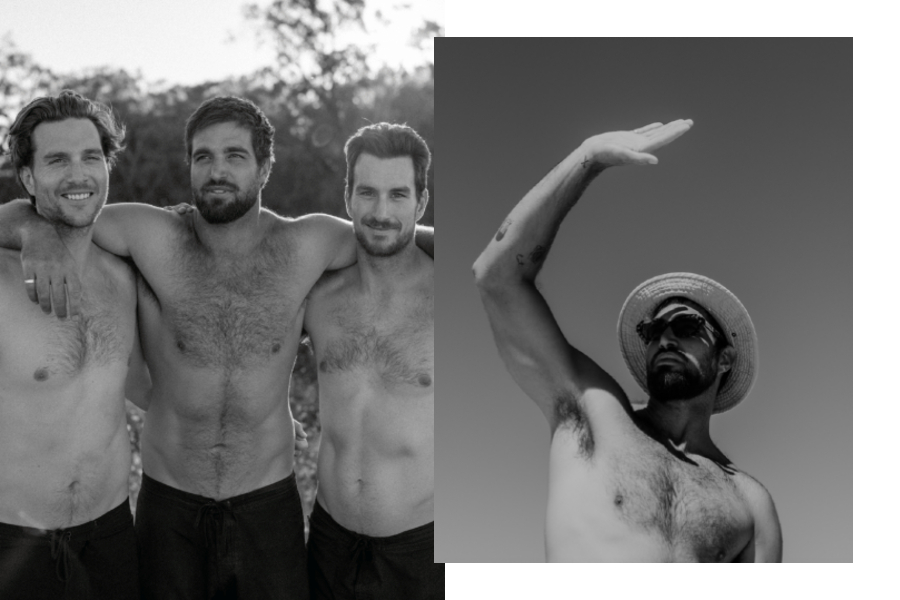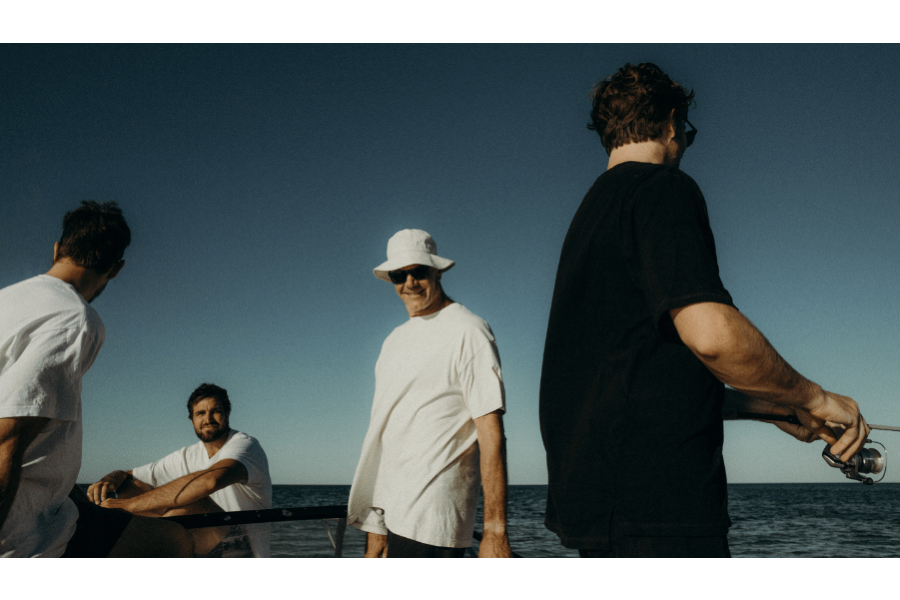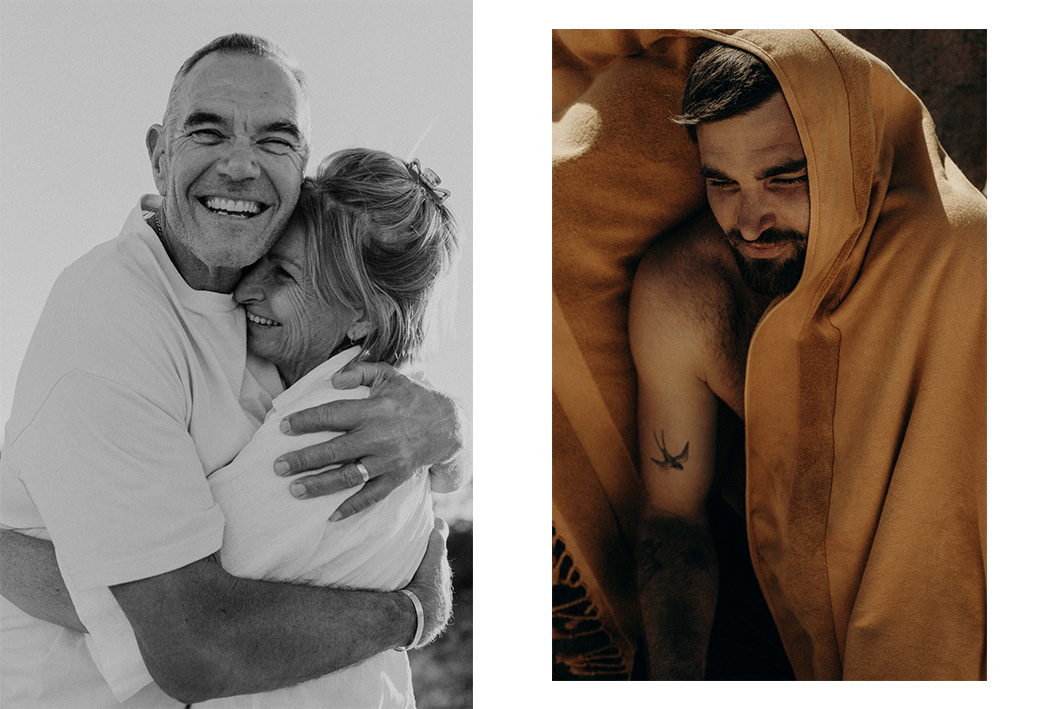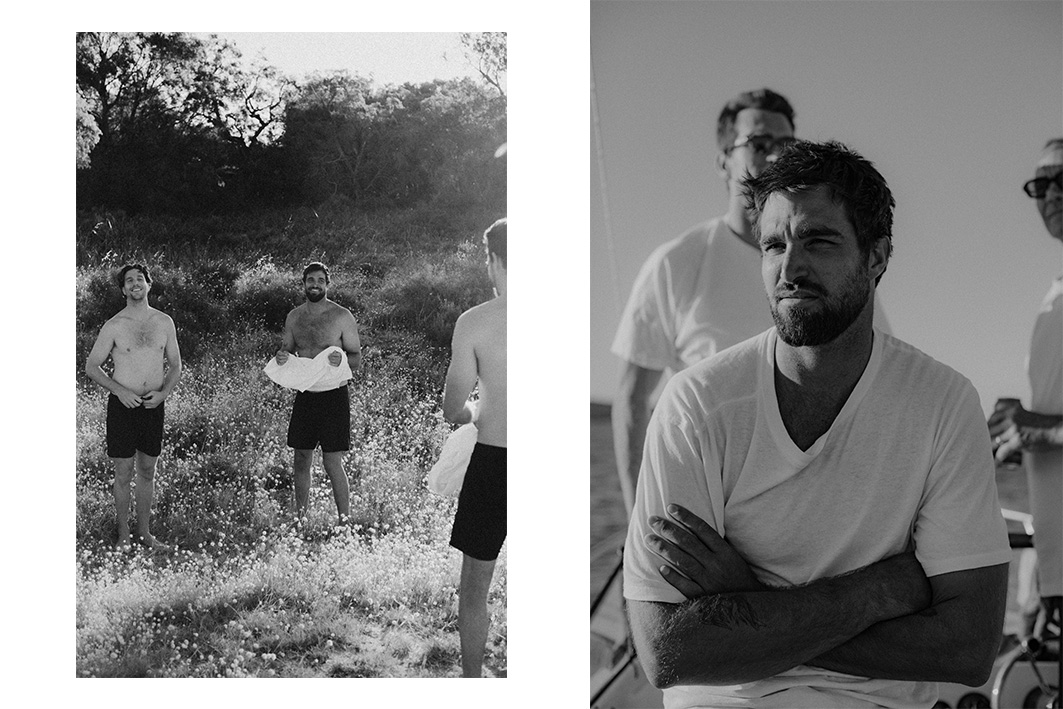
"Last year was tough for everyone. Its hard sometimes being a spokesperson or representing an organisation like RUOK. A lot of the time you’re preaching about how to look after yourself or how to start a conversation and your own mental health takes a back seat." For musician and model Tom Derickx (along with many others) last year was challenging for his mental health. An ambassador for RUOK, an Australian non-profit suicide prevention organisation that advocates for conversations around mental health, Derickx knows the importance of conversation in times of need.
Committed to breaking down the stigma that surrounds toxic masculinity and male vulnerability, Derickx advocates for accountability, openness, and growth within his own circle and beyond. Here, Derickx travels home to WA to visit his family post-lockdown. Lensed by Ryan Murphy and surrounded by those that set him "straight", his parents, his childhood friends and family, Derickx is home to reset. Here, he speaks with us on his own experience with mental health, the benefits of seeking help, and escaping the "boys will be boys" mentality.

Over the last year, mental health has been challenging for many. Can you talk about your experience as a mental health ambassador for RUOKAY?
Last year was tough for everyone. It's hard sometimes being a spokesperson or representing an organisation like RUOK, as a lot of the time you’re preaching about how to look after yourself or how to start a conversation and your own mental health takes a back seat. Last year was a bit like that for me. I put a lot of pressure on myself to be the best version of myself and also the friend. I wasn’t treating myself with the same respect that I treat my friends. One thing that sets me straight is going home to WA. With the borders closed I had to find other avenues to switch off. That was probably the silver lining, not relying on going home to reset myself. Instead I turned to meditation or song writing.

In Australia, we know that issues surrounding mental health impacts men at a significant rate. 75% of those who take their lives in Australia identify as men. Can you talk about what you feel this says about men's health in Australia?
There’s still a stigma around mens mental health. A lot of men put pressure on themselves to be strong and supportive whether that be supporting their loved ones financially, or trying to be the rock of a family. It's just not sustainable, which can lead to an inner battle. I feel like we are making inroads, in particular guys around my age who are proud to be vulnerable. It's the greatest thing you can do, not only for yourself, but it opens the door for other men to speak openly and in turn pointed in the right direction.

Can you talk a bit about toxic masculinity and the issues surrounding it?
Toxic masculinity can rear its head in a few different ways. I think the biggest concern, is when men think it's 'tough' to suppress emotions or mask distress. Anti-feminity is a term that I hate because it shouldn’t even be a word. I have however seen a lot of positive growth in the past six months. We still have a long way to go, but it feels like my inner circle of male friends and colleagues have abandoned the "boys will be boys" mentality and hold each other accountable for misogynistic attitudes and behaviour. This is the evolution of the modern man dropping his guard, and also learning other ways to be better man and role model.
Suicide is the single biggest killer of men under 45. 41% of men who contemplated taking their own life, felt like they couldn’t talk about their feelings.This is why we shouldn’t mock men for being emotional, encourage men to open up, not man up.
How do you think the current construct of masculinity has impacted you over your life and career?
Toxic masculinity has definitely played a detrimental role for me. Playing football in a very masculine environment but also being quite a sensitive man I found it quite hard at times to be my true self.

What do you wish more people knew about mental health?
I wish more people knew the benefits of speaking to a psychologist or counsellor. I do it every week and I wish I started earlier. Even when I’m feeling great, I still get so much out of the sessions. There’s a solid stigma around seeing a psych. I see it as just pushing myself to be the best version of myself, as cliche as that may sound. You realise quite quickly that you’re not alone and there are so many remedies.
What advice would you like to share to other men on the subject of health and mental wellness?
My favourite thing in the world right now is showing vulnerably and accepting my imperfections. It took me a while to find my purpose, but once you figure that out and make value driven decisions, things get easier. My purpose is to show empathy and express myself creatively. I bring everything back to that.




